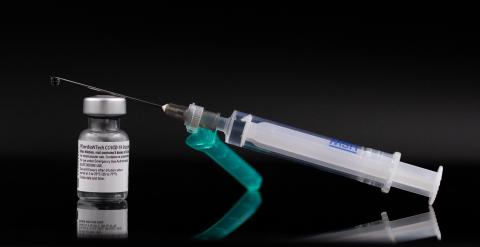Cancers Appearing In Ways Never Before Seen After COVID Vaccinations: Dr. Harvey Risch

by Efthymis Oraiopoulos
Dr. Risch is professor emeritus of epidemiology in the Department of Epidemiology and Public Health at the Yale School of Public Health and Yale School of Medicine. His research has focused extensively on the causes of cancer as well as prevention and early diagnosis.
In an interview for EpochTV's "American Thought Leaders," Dr. Risch said patients must now wait months, not weeks, to get an appointment at an oncology clinic in New York.
here is difficulty in observing whether a vaccine can cause cancer, because cancer usually takes time to develop, Dr. Risch said. It can take anywhere from two years to 30 years, depending on the different types of cancer, from leukemia to colon cancer.
"What clinicians have been seeing," said Dr. Risch, "is very strange things: For example, 25-year-olds with colon cancer, who don't have family histories of the disease—that's basically impossible along the known paradigm for how colon cancer works—and other long-latency cancers that they're seeing in very young people."
He said this is not how cancer normally develops.
"There has to be some initiating stimulus to why this happens," he said.
Fighting Cancer
Dr. Risch said that in his opinion, cancer is something a healthy human body can fight and disable, as the non-normal cancerous cells are gobbled up when detected in a body with a functional immune system. If the immune system is compromised, however, it cannot cope with the task of neutralizing cancerous cells, and cancerous cells are left to multiply and grow, leading to symptoms of cancer.
“That’s the mechanism I think is most likely here,” Dr. Risch said. “We know that the COVID vaccines have done various degrees of damage to the immune system in a fraction of people who have taken them.”
That damage could translate to getting COVID more often, getting other infectious diseases, or getting cancer.
Another example Dr. Risch gave was breast cancer, which normally, if there is a remanifestation after surgical removal, the remanifestation occurs after two decades. However, vaccinated women are now seen to remanifest breast cancers in much shorter periods of time.
“Those are the initial signals that we’ve been seeing, and because these cancers have been occurring to people who were too young to get them, basically, compared to the normal way it works, they’ve been designated as turbo cancers,” Dr. Risch said.




























Comments
The fact that so many pilots…
Comment